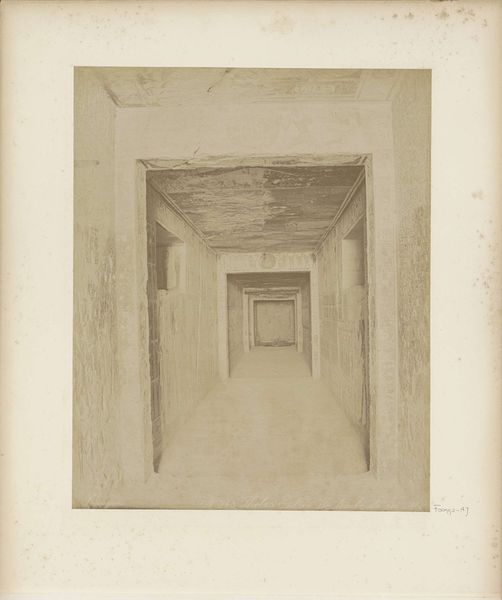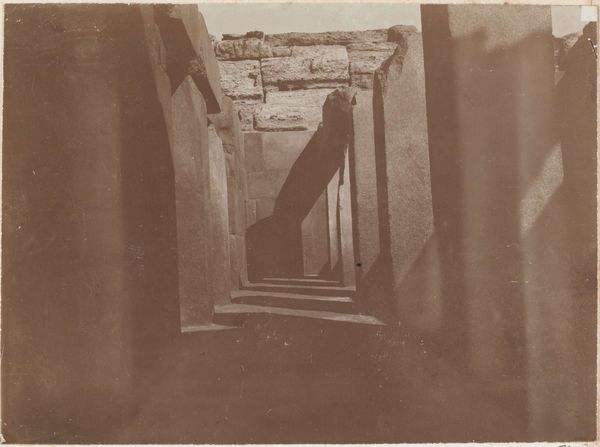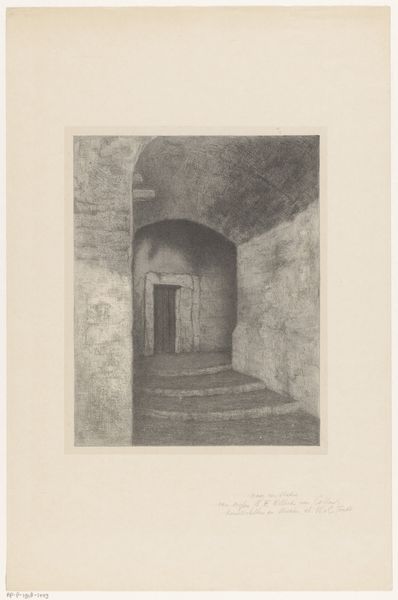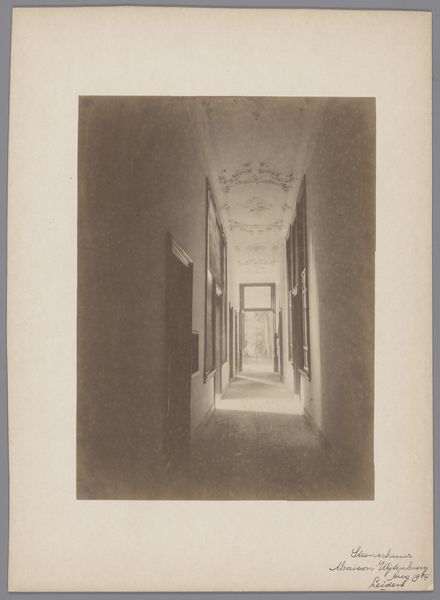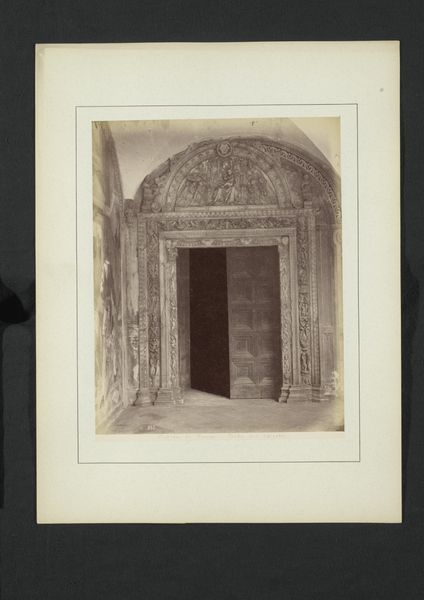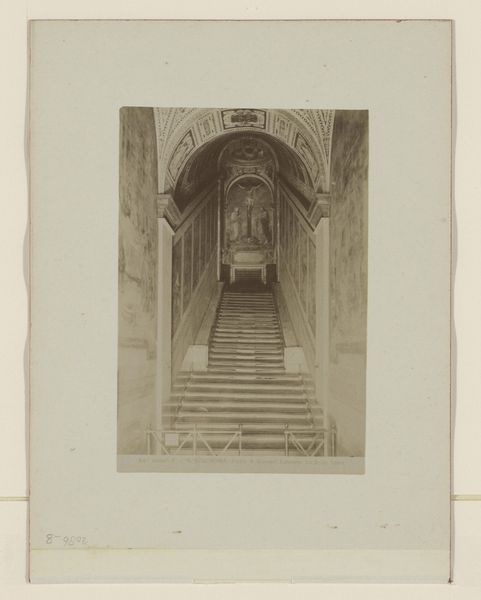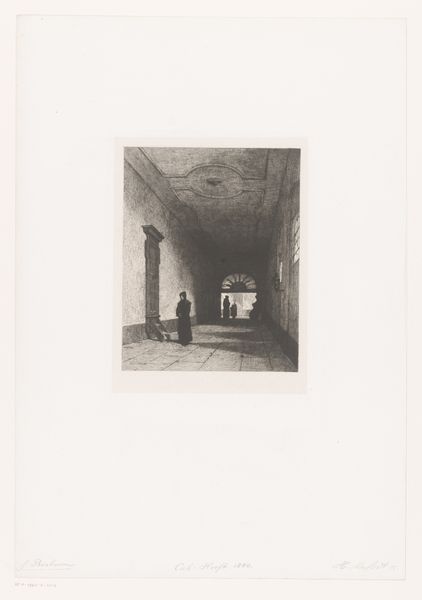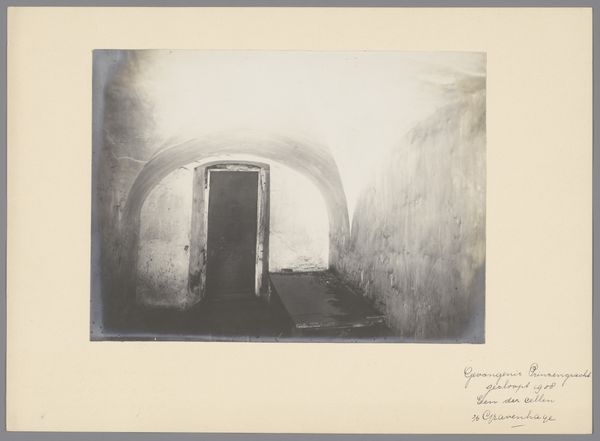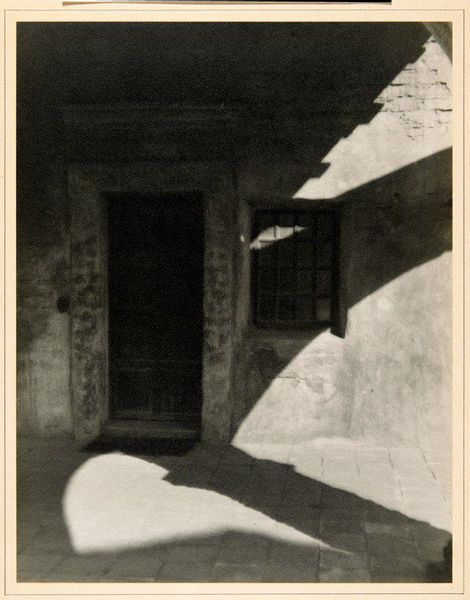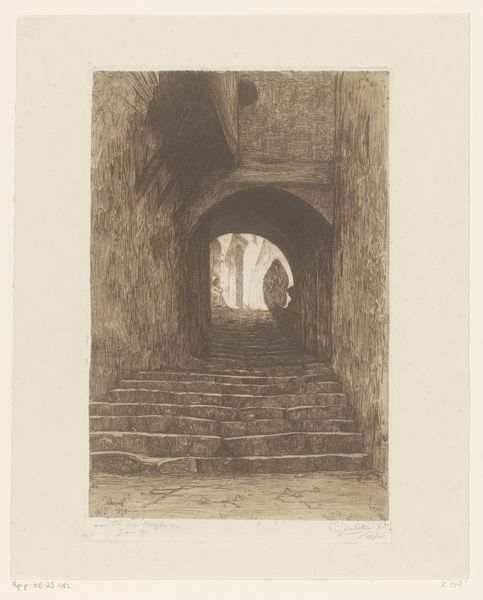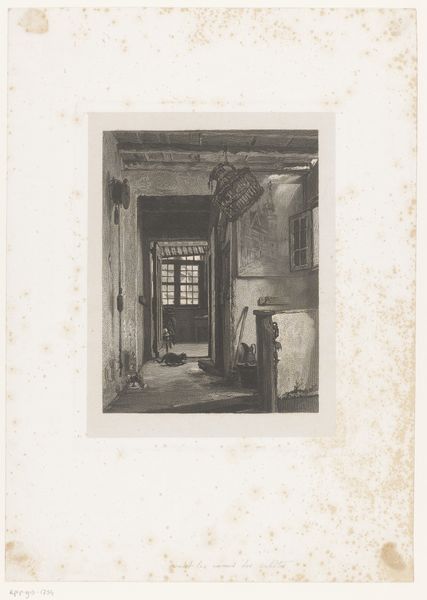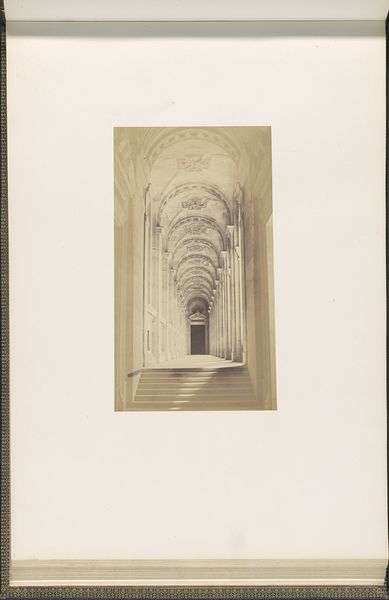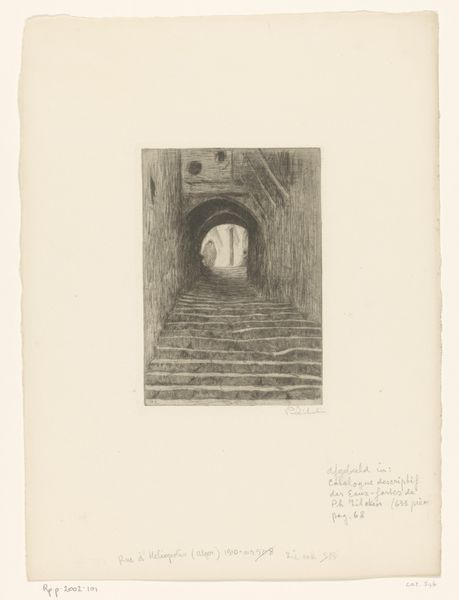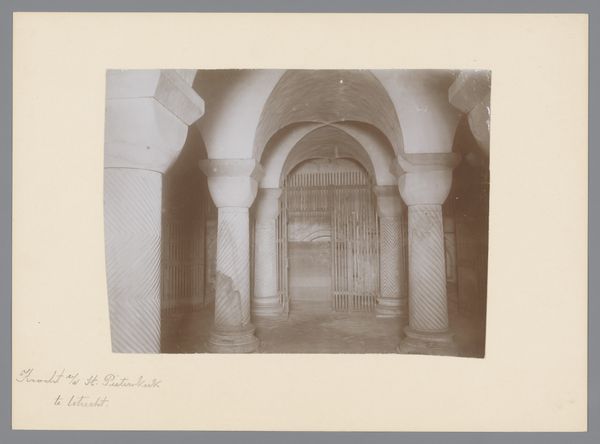
Tombe van Ramses V en VI (KV9) in de Vallei der Koningen, Thebe (Luxor) c. 1870 - 1890
0:00
0:00
cgzangaki
Rijksmuseum
#
photo of handprinted image
#
aged paper
#
toned paper
#
parchment
#
light coloured
#
white palette
#
nude colour palette
#
golden font
#
watercolor
#
historical font
Dimensions: height 278 mm, width 219 mm
Copyright: Rijks Museum: Open Domain
Editor: This photograph, “Tombe van Ramses V en VI (KV9) in de Vallei der Koningen, Thebe (Luxor),” was taken by C. & G. Zangaki sometime between 1870 and 1890. The composition, a symmetrical tunnel receding into the distance, evokes a strong sense of history and mystery. What story does this image tell from a historical perspective? Curator: It’s a fascinating glimpse into the late 19th-century European fascination with Egypt, especially ancient Egyptian funerary practices. Consider that photography itself was relatively new. The Zangaki brothers, Greek photographers based in Egypt, catered to tourists eager to bring home visual evidence of their travels and discoveries. What do you notice about the tonality and texture of the photograph? Editor: Well, it’s sepia-toned, which contributes to the antique feel, and the texture looks like it’s printed on aged paper. Does this particular choice of material and color affect how it was received back then? Curator: Absolutely. The "aged" aesthetic likely enhanced its perceived authenticity. It wasn't just a snapshot, but something meant to evoke a sense of connection to the past, legitimizing a certain narrative of colonial exploration and discovery. How does this compare to how ancient Egyptian art was perceived versus art of the renaissance, in that time period? Editor: Hmm, I hadn’t thought about it that way before. I guess I was seeing it as just an interesting photo, but now I realize it's more about how Europe viewed and wanted to consume Egypt's history. It's so meta! Thanks! Curator: Precisely! It reminds us that images, especially those of historical sites, are always filtered through a lens of contemporary social and political concerns. Always consider context!
Comments
No comments
Be the first to comment and join the conversation on the ultimate creative platform.
